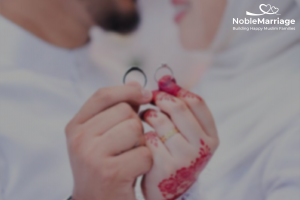
Top Dua For Muslim Ummah
As Muslims, we must constantly make dua (supplication) for the betterment of the ummah (Muslim community) and humanity.
One powerful dua we can make is the one recorded by Aishah (may Allah be pleased with her), in which the Prophet ﷺ sought Allah’s protection from unjust rulers and those who abuse their power. When made with sincerity, this dua has the potential to bring about positive change in our societies and governments.
In today’s article, we will discuss some Duas that we can recite to improve wellness among the Muslim community.
Dua For Muslim Ummah: From Hadith and Other References

Are you looking for a
Muslim Life Partner?
Looking for
Age
Country
The Prophet Muhammad ﷺ was a spiritual leader and a political figure. Throughout his life, he led his followers with wisdom and compassion, highlighting the importance of justice and fairness in all aspects of life.
Therefore, it is no surprise that he made dua, seeking Allah’s protection from oppressive rulers and those who misuse their power. Aishah (May Allah be pleased with her) reported:
“I heard the Messenger of Allah (ﷺ) supplicating in my house:
اللهم من ولى من أمر أمتى شيئاً فشق عليهم، فاشقق عليه ومن ولى من أمر أمتى شيئاً، فرفق بهم، فارفق به ((رواه مسلم))
“O Allah! Treat harshly those who rule over my Ummah with harshness, and treat gently those who rule over my Ummah with gentleness.” [Riyad as-Salihin 654]”
In Islam, good governance is essential for the well-being of society. The Quran and Sunnah provide guidelines on how rulers should conduct themselves and their responsibilities towards their citizens. We can make dua’ for seeking justice from injustice or oppression by reciting,
اللَّهُمَّ إِنِّي أَعُوذُ بِكَ مِنْ ظُلْمِ الْمُلْكِ، وَمِنْ شَرِّ الْقَهَّارِ
“Allahumma inni a’udhu bika min dhulmil-mulk, wa min sharri al-qahhar.”
Meaning: “O Allah, I seek refuge in You from the injustice of rulers and from the evil of the One who exercises power.”
We can pray for the Muslim Ummah by reciting:
اللَّهُمَّ أَصْلِحْ أُمَّةَ مُحَمَّدٍ اللَّهُمَّ فَرِّجْ عَنْ أُمَّةِ مُحَمَّدٍ اللَّهُمَّ ارْحَمْ أُمَّةَ مُحَمَّدٍ
“Allahumma aslih Ummata Muhammad. Allahumma farrij ‘an Ummati Muhammad. AllahummaRham Ummata Muhammad [sallAllahu alayhi wasalam]”
Meaning: “O Allah! Improve (help) the state of the Ummah of Muhammad. O Allah! Grant ease to the Ummah of Muhammad. O Allah! Have mercy on the Ummah of Muhammad.”

Additionally, we can make a prayer by reading,
اللهُـمِّ اغْفِـرْ لِحَيِّـنا وَمَيِّتِـنا وَشـاهِدِنا، وَغائِبِـنا، وَصَغيـرِن وَكَبيـرِنا، وَذَكَـرِنا وَأُنْثـانا. اللهُـمِّ مَنْ أَحْيَيْـتَهُ مِنّا فَأَحْيِـهِ عَلى الإِسْلام، وَمَن تَوَفَّـيْتََهُ مِنّا فَتَوَفَّـهُ عَلى الإِيـمان، اللهُـمِّ لا تَحْـرِمْنـا أَجْـرَه، وَلا تُضِـلَّنا بَعْـدَه
“Allahum-maghfir lihayyinaa, wa mayyitinaa, wa shaahidinaa, wa ghaa’ibinaa, wa sagheerinaa wa kabeerinaa, wa thakarinaa wa ‘unthaanaa. Allahumma man ‘ahyaytahu minnaa fa’ahyihi ‘alal-‘Islaami, wa man tawaffaytahu minnaa fatawaffahu ‘alal-‘eemaani, Allahumma laa tahrimnaa ‘ajrahu wa laa tudhillanaa ba’dahu.”
Meaning: “Oh Allah, forgive our living and our dead, those present and those absent, our young and our old, our males and our females. O Allah, whom among us You keep alive, then let such a life be upon Islam, and whom among us You take unto Yourself, then let such a death be upon faith. O Allah, do not deprive us of his reward and do not let us stray after him.” [Sahih Abu Dawud: 3201 and Tirmidhi: 1024]
Or we can also read,
اللهُـمِّ اغْفِـرْ لَهُ وَارْحَمْـه ، وَعافِهِ وَاعْفُ عَنْـه ، وَأَكْـرِمْ نُزُلَـه ، وَوَسِّـعْ مُدْخَـلَه ، وَاغْسِلْـهُ بِالْمـاءِ وَالثَّـلْجِ وَالْبَـرَدْ ، وَنَقِّـهِ مِنَ الْخطـايا كَما نَـقّيْتَ الـثَّوْبَ الأَبْيَـضَ مِنَ الدَّنَـسْ ، وَأَبْـدِلْهُ داراً خَـيْراً مِنْ دارِه ، وَأَهْلاً خَـيْراً مِنْ أَهْلِـه ، وَزَوْجَـاً خَـيْراً مِنْ زَوْجِه ، وَأَدْخِـلْهُ الْجَـنَّة ، وَأَعِـذْهُ مِنْ عَذابِ القَـبْر وَعَذابِ النّـار
“Allaahum-maghfir lahu warhamhu, wa ‘aafihi, wa’fu ‘anhu, wa ‘akrim nuzulahu, wa wassi’ mudkhalahu, waghsilhu bilmaa’i waththalji walbaradi, wa naqqihi minal-khataayaa kamaa naqqaytath-thawbal-‘abyadha minad-danasi, wa ‘abdilhu daaran khayran min daarihi, wa ‘ahlan khayran min ‘ahlihi, wa zawjan khayran min zawjihi, wa ‘adkhilhul-jannata, wa ‘a’udhu min ‘adhabil-qabri wa ‘athaabin-naar.”
Meaning: ‘O Allah, forgive them and have mercy on them and give them strength and pardon them. Be generous to them and cause their entrance to be wide and wash them with water and snow and hail. Cleanse them of their transgressions as white cloth is cleansed of stains. Give them an abode better than their home, and a family better than their family and a spouse better than their spouse. Take them into Paradise and protect them from the punishment of the grave, and from the punishment of Hell-fire.’ [Sahih Muslim: 963]
When we make dua for just and equitable governance, we ask Allah to protect us from oppression and contribute to the betterment of our communities. Our prayers have the potential to create a ripple effect, inspiring leaders to act with integrity and compassion and promoting positive change in our societies.
Seeking Allah’s Protection: A Dua for the Ummah against Injustice
The Dua for Muslim Ummah seeking Allah’s protection from unjust governments and those who abuse their power. It reminds us of our responsibility as Muslims to stand up against oppression and injustice and to work towards creating a better world for all.
As we recite the dua, let us remember to be proactive to create positive change. Let us hold our leaders accountable, speak out against injustice, and work towards building bridges of understanding and compassion.
May Allah accept our dua and guide us towards the path of righteousness. Ameen.



